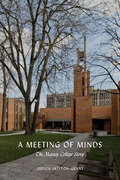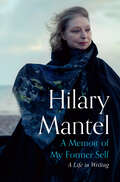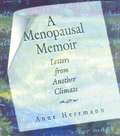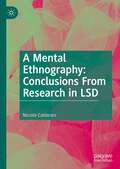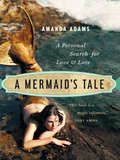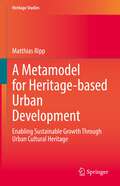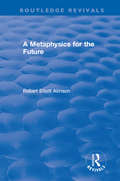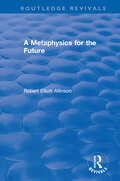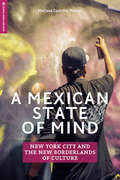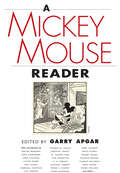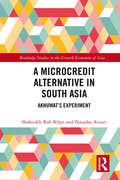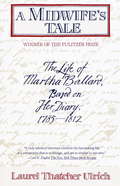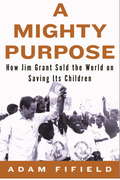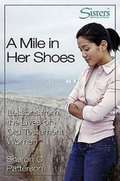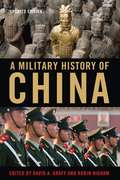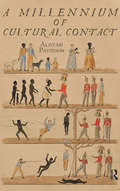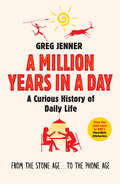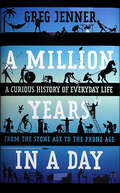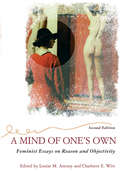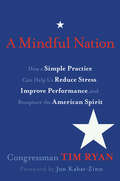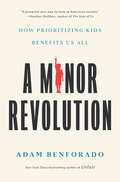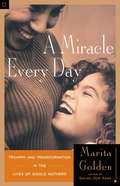- Table View
- List View
A Meeting of Minds
by Judith Skelton GrantOpened in 1963, Massey College is a residential college for graduate students at the University of Toronto. The college was the brainchild of Vincent Massey, Canada's first native-born Governor General, who wanted to create an intellectually stimulating milieu like the one he associated with the long-established colleges of Oxford and Cambridge. Massey College's first master was the legendary Canadian novelist, playwright, and editor, Robertson Davies. Davies and his successors - Patterson Hume, Ann Saddlemyer, and John Fraser - fostered a dynamic community of students, scholars, and public intellectuals that thrives today under the mastership of Hugh Segal.Written by Judith Skelton Grant, A Meeting of Minds is the definitive account of the college's first fifty years, its many traditions, and the hundreds of fellows who have passed through its halls. Full of wonderful anecdotes about the college's notable fellows and alumni, this history of Massey College takes the reader into the heart of one of Canada's most important intellectual institutions.
A Memoir of My Former Self: A Life in Writing
by Hilary MantelTHE FINAL BOOK FROM ONE OF OUR GREATEST WRITERS In addition to her celebrated career as a novelist, Hilary Mantel contributed for years to newspapers and journals, unspooling stories from her own life and illuminating the world as she found it. “Ink is a generative fluid,” she explains. “If you don’t mean your words to breed consequences, don’t write at all.” A Memoir of My Former Self collects the finest of this writing over four decades.Her subjects are wide-ranging, sharply observed, and beautifully rendered. She discusses nationalism and her own sense of belonging; our dream life popping into our conscious life; the mythic legacy of Princess Diana; the many themes that feed into her novels—revolutionary France, psychics, Tudor England; and other novelists, from Jane Austen to V.S. Naipaul. She writes about her father and the man who replaced him; she writes fiercely and heartbreakingly about the battles with her health that she endured as a young woman, and the stifling years she found herself living in Saudi Arabia. Here, too, is her legendary essay “Royal Bodies,” on our endless fascination with the current royal family.From her unusual childhood to her all-consuming interest in Thomas Cromwell that grew into the Wolf Hall trilogy, A Memoir of My Former Self reveals the shape of Hilary Mantel’s life in her own luminous words, through “messages from people I used to be.” Filled with her singular wit and wisdom, it is essential reading from one of our greatest writers.
A Menopausal Memoir: Letters from Another Climate
by Ellen Cole Esther D Rothblum Anne C HerrmannThe only extended, first-person narrative about menopause, A Menopausal Memoir: Letters from Another Climate explores the connection between menopause, mourning, and memory through nine fictional letters written to different addressees. The letters explain the author’s own experience of having a hysterectomy (without her permission) during surgery for endometriosis and being thrown into instant menopause. Herrmann expresses her experiences differently in each letter based on the recipient’s gender, sexual identity, and age, revealing the complexities of accepting menopause. Psychotherapists, psychologists, physicians, medical students, academics, and those interested in women’s health and women’s studies will receive insight into one woman’s experience and will learn how our bodies mold our sexual identity and shape many aspects of our lives.Writing these letters from the point of view of a scholar engaged in personal narrative but not in the familiar narrative of a woman married with children, Herrmann examines her journey of loss, recovery, and healing through feminist theory. The letters in A Menopausal Memoir reveal many other issues, including: the relationship between the female body and the meanings attached to it the different ways women tell their stories about difficult experiences negotiating the relationship between growing older and sexual identity the body’s response(s) to the loss of organs that form/inform its history the connection between body, identity, and disease A highly personal, yet theoretical, approach to the experience of menopause, A Menopausal Memoir explores how changes in the body affect your sexual identity, your relationships, and your feelings as a woman.
A Mental Ethnography: Conclusions from Research in LSD
by Niccolo CaldararoThere has recently been a renewed interest in both casual use of psychedelics as well as experimental use and attempts to discover therapeutic value. There is an effort to recapture the achievements and failures of past work to guide present use. This book is based around material derived from unpublished scientific research from Dr. Robert Mogar’s laboratory and built upon by forty years of field research by the author. The author Niccolo Caldararo participated in a number of studies of perception, including sensory deprivation and psychotropic drugs, some of recent manufacture or discovery and some of primitive or traditional societies. He places this analysis of the physiological aspects of hallucinations, delusions, visions and dreamsn context through an , as well as cross cultural data on dreams, dreaming and drug use and the social value of hallucinations, dreams and visions.The book reviews ethnographic literature in this area and contributes to a comprehensive evaluation of past work done in this area.
A Mermaid's Tale
by Amanda AdamsFrom the seas of antiquity to the city streets of today, A Mermaid's Tale explores the myth and meanings of the mermaid. Beginning with Melusina, the bathing mermaid par excellence, Amanda Adams goes on to describe the seductive sirens and their honeyed songs, the powerful Arctic sea goddess Sedna, and the long-haired rusalki or Russian lore, among other legendary mermaids. As she tells their stories, she also expresses a love of the mermaid that surely no sea-bound sailor could ever match.Grounded in cultural anthropology, folklore studies, and intellectual rigor, A Mermaid's Tale also draws on literature, poetry, and mythology for its insights. It is a book filled with depth and detail as it describes Adam's swim through the ocean of her own life in search of the unusual, the beautiful, and the perfectly extraordinary.
A Metamodel for Heritage-based Urban Development: Enabling Sustainable Growth Through Urban Cultural Heritage (Heritage Studies)
by Matthias RippThis book proposes a Metamodel for heritage-based urban development, based on urban morphology, governance theory, and the metamodeling concept of John P. Van Gigch. Building on international policies such as the 2011 Recommendation for Historic Urban Landscapes and the results of the 2016 Urban Habitat III Conference, cultural heritage is now regarded as a potential resource for sustainable urban development. While more and more evidence of the potential benefits of cultural heritage for sustainable development has been published, this book is the first to develop and design a Metamodel that can be universally applied in a wide variety of settings. The Metamodel was developed using grounded theory and design research methodology and is based on three successful case-models from European contexts. The book includes three application scenarios that elaborate how the metamodel can be used to design, evaluate, and improve processes where cultural heritage is a starting point for sustainable urban development.
A Metaphysics for the Future (Routledge Revivals)
by Robert AllinsonThis title was first published in 2001. This work is intended to serve not only as an expression of a new idea of a philosophy, but as an "apologia" for philosophy as a legitimate and independent discipline in its own right. It argues that in the 20th century, truth has not been abandoned, but merely modified. The text proposes a return to truth and suggests that it is only after apprehending the truths of consciousness that the philosopher's mirror may become a kaleidoscope through which reality may be contemplated. First order truth lies in the realm of discovery, and discovery takes place only within the moment of subjective re-enactment.
A Metaphysics for the Future (Routledge Revivals)
by Robert AllinsonThis title was first published in 2001. This work is intended to serve not only as an expression of a new idea of a philosophy, but as an "apologia" for philosophy as a legitimate and independent discipline in its own right. It argues that in the 20th century, truth has not been abandoned, but merely modified. The text proposes a return to truth and suggests that it is only after apprehending the truths of consciousness that the philosopher's mirror may become a kaleidoscope through which reality may be contemplated. First order truth lies in the realm of discovery, and discovery takes place only within the moment of subjective re-enactment.
A Mexican State of Mind: New York City and the New Borderlands of Culture (Global Media and Race)
by Melissa Castillo PlanasA Mexican State of Mind: New York City and the New Borderlands of Culture explores the cultural and creative lives of the largely young undocumented Mexican population in New York City since September 11, 2001. Inspired by a dialogue between the landmark works of Paul Gilroy and Gloria Anzaldúa, it develops a new analytic framework, the Atlantic Borderlands, which bridges Mexican diasporic experiences in New York City and the black diaspora, not as a comparison but in recognition that colonialism, interracial and interethnic contact through trade, migration, and slavery are connected via capitalist economies and technological developments. This book is based on ten years of fieldwork in New York City, with members of a vibrant community of young Mexican migrants who coexist and interact with people from all over the world. It focuses on youth culture including hip hop, graffiti, muralism, labor activism, arts entrepreneurship and collective making.
A Mickey Mouse Reader
by Garry ApgarContributions by Walter Benjamin, Lillian Disney, Walt Disney, E. M. Forster, Stephen Jay Gould, M. Thomas Inge, Jim Korkis, Anna Quindlen, Diego Rivera, Gilbert Seldes, Maurice Sendak, John Updike, Irving Wallace, Cholly Wood, and many othersRanging from the playful, to the fact-filled, and to the thoughtful, this collection tracks the fortunes of Walt Disney's flagship character. From the first full-fledged review of his screen debut in November 1928 to the present day, Mickey Mouse has won millions of fans and charmed even the harshest of critics. Almost half of the eighty-one texts in A Mickey Mouse Reader document the Mouse's rise to glory from that first cartoon, Steamboat Willie, through his seventh year when his first color animation, The Band Concert, was released. They include two important early critiques, one by the American culture critic Gilbert Seldes and one by the famed English novelist E. M. Forster. Articles and essays chronicle the continued rise of Mickey Mouse to the rank of true icon. He remains arguably the most vivid graphic expression to date of key traits of the American character—pluck, cheerfulness, innocence, energy, and fidelity to family and friends. Among press reports in the book is one from June 1944 that puts to rest the urban legend that “Mickey Mouse” was a password or code word on D-Day. It was, however, the password for a major pre-invasion briefing. Other items illuminate the origins of “Mickey Mouse” as a term for things deemed petty or unsophisticated. One piece explains how Walt and brother Roy Disney, almost single-handedly, invented the strategy of corporate synergy by tagging sales of Mickey Mouse toys and goods to the release of Mickey's latest cartoons shorts. In two especially interesting essays, Maurice Sendak and John Updike look back over the years and give their personal reflections on the character they loved as boys growing up in the 1930s.
A Microcredit Alternative in South Asia: Akhuwat's Experiment (Routledge Studies in the Growth Economies of Asia)
by Shahrukh Rafi Khan Natasha AnsariMicrocredit took the development world by storm as a tool for poverty alleviation in the 1980s. After being hailed as a panacea, a few decades on it started being forcefully criticised based on its practice. This book explores Akhuwat (literally brotherhood), a rapidly growing Pakistani NGO formed in 2001, which addresses the shortcomings of conventional microfinance. Its vision is of a society built on empathy and social solidarity and its mission is that of creating self-sufficiency among the entrepreneurial poor. This book examines whether Akhuwat fulfils its promises of not pushing loans or encouraging clients to get on a debt treadmill and helping them to avoid high debt burdens by charging no interest and easing repayment terms. Conventional microcredit organizations are criticised for losing sight of the original mission of poverty alleviation by engaging in empire building and Akhuwat’s goal is to avoid this by embracing an alternative strategy of scaling up. Finally, this book also analyses Akhuwat’s approach as being gender sensitive and embracing all religions, castes and ethnicities. Based on fieldwork designed to assess if Akhuwat is the microcredit alternative it claims to be, this book will be of interest to scholars of poverty and development studies in general and microcredit in particular.
A Midwife's Tale: The Life of Martha Ballard, Based on Her Diary, 1785-1812 (Sparknotes Literature Guide Ser.)
by Laurel Thatcher UlrichPULITZER PRIZE WINNER • Drawing on the diaries of one woman in eighteenth-century Maine, "A truly talented historian unravels the fascinating life of a community that is so foreign, and yet so similar to our own" (The New York Times Book Review).Between 1785 and 1812 a midwife and healer named Martha Ballard kept a diary that recorded her arduous work (in 27 years she attended 816 births) as well as her domestic life in Hallowell, Maine. On the basis of that diary, Laurel Thatcher Ulrich gives us an intimate and densely imagined portrait, not only of the industrious and reticent Martha Ballard but of her society. At once lively and impeccably scholarly, A Midwife's Tale is a triumph of history on a human scale.
A Mighty Purpose
by Adam FifieldThe inspiring story of how the iconoclastic humanitarian Jim Grant succeeded in saving the lives of tens of millions of children through his extraordinary ability to win over world leaders Nicholas Kristof hailed Jim Grant as a man who "probably saved more lives than were destroyed by Hitler, Mao, and Stalin combined." Nominated by President Jimmy Carter to head UNICEF, Grant ran the United Nations agency from 1980 to 1995 and became the most powerful advocate for children the world has ever seen. To ensure that even children trapped by war received health care and immunizations, he brokered humanitarian ceasefires by exploiting the political self-interests of presidents and warlords alike. Grant at first met fierce resistance at the United Nations and in his own organization, and some thought his ideas were crazy and dangerous. But as he kept toppling obstacle after obstacle, he eventually won over even his most stubborn detractors. Grant spearheaded a historic surge in worldwide childhood immunization rates and launched a movement that profoundly altered the face of global health and international development.
A Migrant With Hope
by Elizabeth Loza Newby"My life as a young girl was far from representative of American experience, for I belonged to a minority of a minority." Thus Elizabeth Newby begins the story of her life. It is a story of a Mexican-American migrant child who with her family lived for thirteen years in the back of a truck. From the first chapter which tells of these years when the family followed the harvests of cotton and fruits and vegetables back and forth across America, the author continues in the second chapter to describe her family's life as settled migrants with a home on solid ground. Other chapters tell of Elizabeth's struggle for independence, which brought dis- ownment by her family, and of the experience of liberation Elizabeth found. Her liberation to a world of ideas and an altered view of family life was one she could not even dream. In the final chapters, Elizabeth tells of her spiritual journey. She describes the influence of a Southern Baptist mission in providing spiritual help and renewed hope for migrant families. Elizabeth Newby says: "Through times of both doubt and assurance, I have developed a faith that has been sufficient to sustain me during the most difficult crises. Most of my readers have never lived in a truck, but all have their own problems, and my hope is that my story may be of help in facing them."
A Mile in Her Shoes: Lessons From the Lives of Old Testament Women
by Sheron PattersonThis book includes six weeks' worth of Bible study about women of the Old Testament: Deborah, Rahab, Hagar, Abigail, Hannah, and the widow and the oil are included.
A Military History Of China
by Robin Higham David A. GraffGaining an understanding of China's long and sometimes bloody history can help to shed light on China's ascent to global power. Many of China's imperial dynasties were established as the result of battle, from the chariot warfare of ancient times to the battles of the Guomindang (KMT) and Communist regimes of the twentieth century. China's ability to sustain complex warfare on a very large scale was not emulated in other parts of the world until the Industrial Age, despite the fact that the country is only now rising to economic dominance. In A Military History of China, Updated Edition, David A. Graff and Robin Higham bring together leading scholars to offer a basic introduction to the military history of China from the first millennium B. C. E. to the present. Focusing on recurring patterns of conflict rather than traditional campaign narratives, this volume reaches farther back into China's military history than similar studies. It also offers insightful comparisons between Chinese and Western approaches to war. This edition brings the volume up to date, including discussions of the Chinese military's latest developments and the country's most recent foreign conflicts.
A Millennium of Cultural Contact
by Alistair PatersonAlistair Paterson has written a comprehensive textbook detailing the millennium of cultural contact between European societies and those of the rest of the world. Beginning with the Norse intersection with indigenous peoples of Greenland, Paterson uses case studies and regional overviews to describe the various patterns by which European groups influenced, overcame, and were resisted by the populations of Africa, the Americas, East Asia, Oceania, and Australia. Based largely on the evidence of archaeology, he is able to detail the unique interactions at many specific points of contact and display the wide variations in exploration, conquest, colonization, avoidance, and resistance at various spots around the globe. Paterson’s broad, student-friendly treatment of the history and archaeology of the last millennium will be useful for courses in historical archaeology, world history, and social change.
A Million Years in a Day
by Greg Jenner'A wonderful idea, gloriously put into practice. Greg Jenner as is witty as he is knowledgeable' - Tom Holland Who invented beds? When did we start cleaning our teeth? How old are wine and beer? Which came first: the toilet seat or toilet paper? What was the first clock? Every day, from the moment our alarm clock wakes us in the morning until our head hits our pillow at night, we all take part in rituals that are millennia old. Structured around one ordinary day, A MILLION YEARS IN A DAY reveals the astonishing origins and development of the daily practices we take for granted. In this gloriously entertaining romp through human history Greg Jenner explores the gradual and often unexpected evolution of our daily routines. This is not a story of politics, wars or great events, instead Greg Jenner has scoured Roman rubbish bins, Egyptian tombs and Victorian sewers to bring us the most intriguing, surprising and sometimes downright silly nuggets from our past. Drawn from across the world, spanning a million years of humanity, this book is a smorgasbord of historical delights. It is a history of all those things you always wondered - and many you have never considered. It is the story of your life, one million years in the making.
A Million Years in a Day: A Curious History of Daily Life
by Greg Jenner'A wonderful idea, gloriously put into practice. Greg Jenner is as witty as he is knowledgeable' - Tom Holland'You will love Greg Jenner's jolly account of how we have more in common with our ancestors than we might think ... all human life is here, amusingly conveyed in intriguing nuggets of gossipy historical anecdote' - Daily MailEvery day, from the moment our alarm clock wakes us in the morning until our head hits our pillow at night, we all take part in rituals that are millennia old. In this gloriously entertaining romp through human history - featuring new updates for the paperback edition - BBC Horrible Histories consultant Greg Jenner explores the hidden stories behind these daily routines.This is not a story of politics, wars or great events, instead Greg Jenner has scoured Roman rubbish bins, Egyptian tombs and Victorian sewers to bring us the most intriguing, surprising and sometimes downright silly nuggets from our past.It is a history of all those things you always wondered - and many you have never considered. It is the story of our lives, one million years in the making.
A Million Years in a Day: A Curious History of Daily Life
by Greg Jenner'A wonderful idea, gloriously put into practice. Greg Jenner as is witty as he is knowledgeable' - Tom Holland'Delightful, surprising and hilarious, this is a fascinating history of the everyday objects and inventions we take for granted' - Lauren LaverneEvery day, from the moment our alarm clock wakes us in the morning until our head hits our pillow at night, we all take part in rituals that are millennia old. In this gloriously entertaining romp through human history, Greg Jenner explores the hidden stories behind these daily routines.This is not a story of politics, wars or great events, instead Greg Jenner has scoured Roman rubbish bins, Egyptian tombs and Victorian sewers to bring us the most intriguing, surprising and sometimes downright silly nuggets from our past.Written and narrated in a chatty style by Greg Jenner, Historical Consultant to CBBC's multi-award-winning HORRIBLE HISTORIES, it is an entertaining history of all those things you always wondered - and many you have never considered. It is the story of our lives, one million years in the making.(p) 2015 Orion Publishing Group
A Million Years in a Day: A Curious History of Everyday Life from the Stone Age to the Phone Age
by Greg JennerWho invented beds? When did we start cleaning our teeth? How old are wine and beer? Which came first: the toilet seat or toilet paper? What was the first clock?Every day, from the moment our alarm clock wakes us in the morning until our head hits our pillow at night, we all take part in rituals that are millennia old. Structured around one ordinary day, A Million Years in a Day reveals the astonishing origins and development of the daily practices we take for granted. In this gloriously entertaining romp through human history, Greg Jenner explores the gradual—and often unexpected—evolution of our daily routines.This is not a story of wars, politics, or great events. Instead, Jenner has scoured Roman rubbish bins, Egyptian tombs, and Victorian sewers to bring us the most intriguing, surprising, and sometimes downright silly historical nuggets from our past.Drawn from across the world, spanning a million years of humanity, this book is a smorgasbord of historical delights. It is a history of all those things you always wondered about—and many you have never considered. It is the story of your life, one million years in the making.
A Mind Of One's Own: Feminist Essays On Reason And Objectivity
by Louise AntonyWith philosophy so steeped in patriarchal tradition how is it possible for feminists to work within it? In this volume, 13 feminist theorists discuss whether traditional ideals of objectivity and rationality should be given a place within the committed feminist view of philosophy and the world.
A Mindful Nation: How A Simple Practice Can Help Us Reduce Stress, Improve Performance, And Recapture The American Spirit
by Tim RyanIn one of the most optimistic books to come out of Washington during these trying times, Congressman Tim Ryan presents us with an inspiring and hopeful view of our country's future-and a roadmap for how to get there. Across America, people are feeling squeezed, exhausted, and running faster and faster while falling farther behind. The economy continues to struggle, wars rage on, and every week brings news of another environmental disaster. Everything seems broken and people feel helpless to make a difference. Despite this bleak outlook, there are strands of quiet hope and confidence. People are beginning to take action in a new way: they are slowing down, paying attention, and gaining an awareness of the inner resources at their disposal. This new way is based on the timeless and universal practice of mindfulness, the natural capabilities of our brains and minds, and the core American values of self-reliance, stick-to-it-iveness, and getting the job done. And it's manifesting in every sector of our society—it's helping sick people work with their pain, school children improve their learning, veterans heal from trauma, and CEOs become more inclusive and effective leaders. All these benefits—and more—are supported by scientific research on mindfulness that is regularly reported by the mainstream media, such as ABC World News with Diane Sawyer. In A Mindful Nation , Congressman Tim Ryan—an all-American guy from the heartland who is also a thoughtful, committed leader—takes this story about the benefits of mindfulness to the next level. He connects the dots between what's happening with mindfulness in the classrooms, hospitals, boardrooms, research labs, and army bases across the country by sharing his interactions with experts in education, defense, health care, criminal justice, and the environment. A Mindful Nation paints a picture of emerging solutions that both benefit the reader and address the societal difficulties we are facing. Ryan's folksy, warm, and encouraging voice uplifts us and shows that there is something we can do right here and right now to help ourselves and our country. Both inspiring and pragmatic, A Mindful Nation shows how the benefits of mindfulness apply to the current challenges that affect each of us in our own lives and in our communities, and thus have implications for our society as a whole. With a hard-nosed understanding of politics, government budgets, and what it takes to get something done, Ryan connects a practical approach—lead with the science, show the savings and show how this can help us educate our children to be competitive in the world arena—with a hopeful vision for how mindfulness can reinvigorate our core American values and transform and revitalize our communities.
A Minor Revolution: How Prioritizing Kids Benefits Us All
by Adam BenforadoA revelatory investigation into how America is failing its children, and an urgent manifesto on why helping them is the best way to improve all of our lives—from the New York Times bestselling author of Unfair: The New Science of Criminal Injustice&“Revolutionary and accessible . . . a powerful new way to look at American society through the lens of our children.&”—Heather McGhee, New York Times bestselling author of The Sum of UsAt the dawn of the twentieth century, a bright new age for children appeared on the horizon, with progress on ending child labor, providing public education, combating indigence, promoting wellness, and creating a juvenile justice system. But a hundred years on, the promised light has not arrived. Today, more than eleven million American children live in poverty and more than four million lack health insurance. Each year, we prosecute thousands of kids as adults, while our schools crumble. We deny young people any political power, while we fail to act on the issues that matter most to them: racism, inequality, and climate change.Through unforgettable stories, law professor Adam Benforado draws a vivid portrait of our neglect. We are there when Ariel is placed in an orphanage after her parents are locked away for transporting marijuana, when Harold first gazes in disbelief upon the immaculate lawn of an elite private school after a childhood of asphalt play yards, when Wylie is hit with a paddle by his public-school principal as punishment for taking a moment of silence to protest gun violence. When Tyler runs for governor at age seventeen, we are also there to witness the extraordinary capacities of young people.Our disregard for children&’s rights is not simply a moral problem; it&’s also an economic and social one. The root cause of nearly every major challenge we face—from crime to poor health to unemployment—can be found in our mistreatment of kids. But in that sobering truth is also the key to changing our fate as a nation.Drawing on the latest research on the value of early intervention, investment, and empowerment, A Minor Revolution makes the urgent case for putting children first—in our budgets and policies, in how we develop products and enact laws, and in our families and communities. Childhood is the window of opportunity for all of us.
A Miracle Every Day
by Marita GoldenA Miracle Everyday takes an illuminating and intimate look at flourishing single-mother families. Single motherhood and the children of single mothers have been the subject of overwhelmingly negative statistical analysis. But, asks Marita Golden, where are the studies that analyze the strengths of single mothers, the positive adaptive skills learned by their children, the support systems that help these families work? In A Miracle Every Day Golden, once a single mother herself, and several other single mothers and their family members share their success stories with great honestly and insight. Golden identifies the coping characteristics these families have in common and organizes them into guiding themes, making A Miracle Every Day a book that single mothers and their support networks can turn to for wisdom, comfort, and inspiration.
